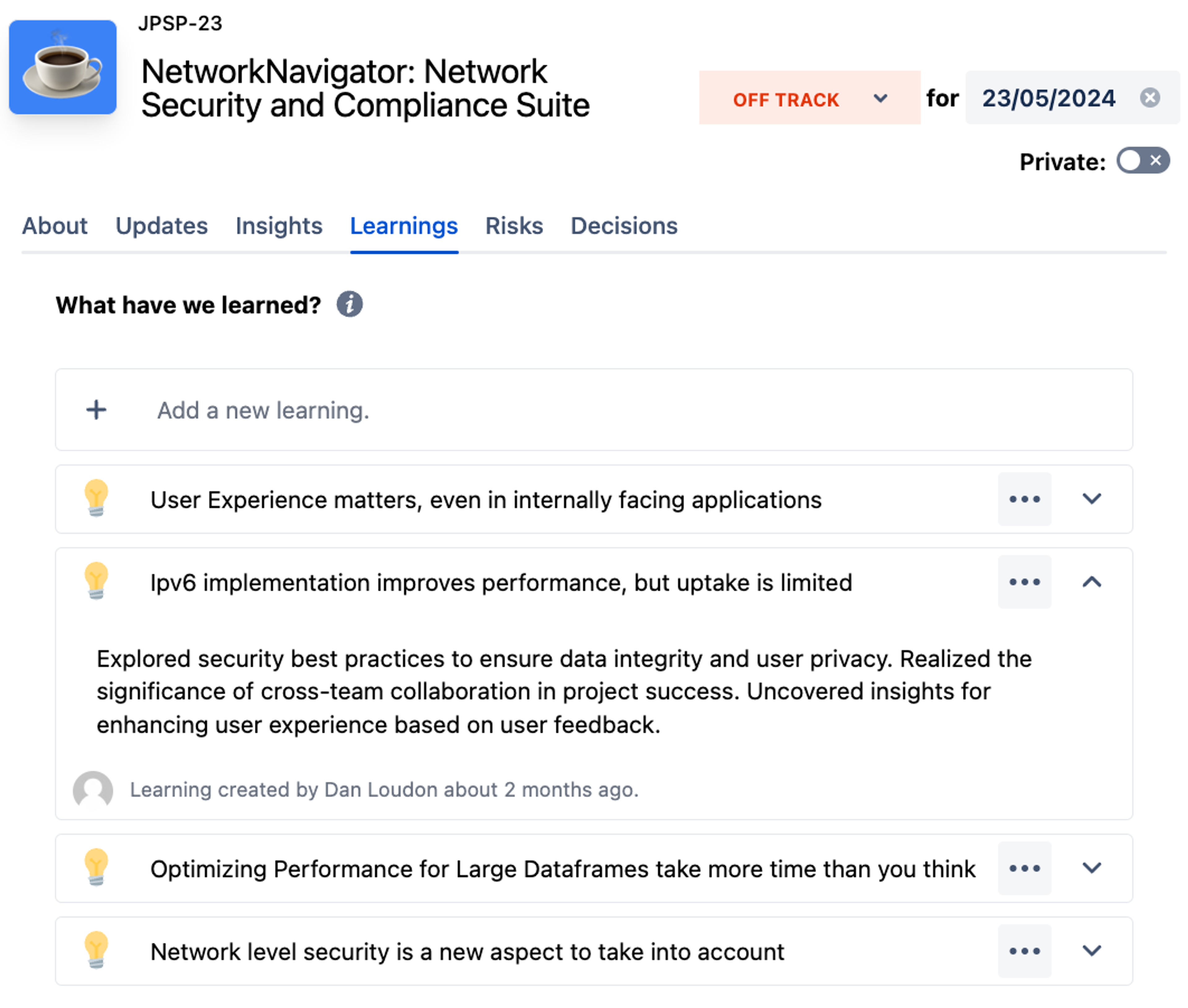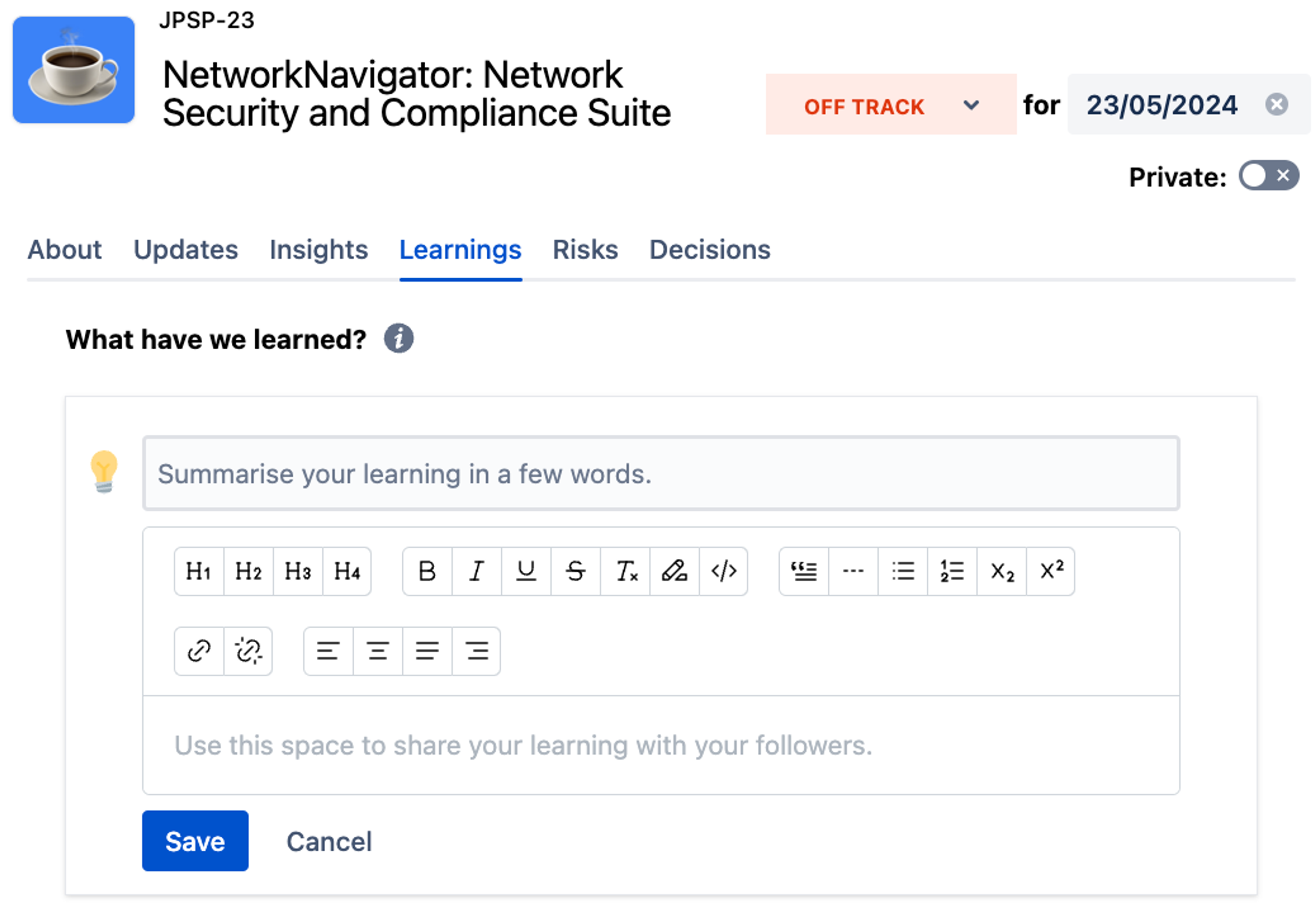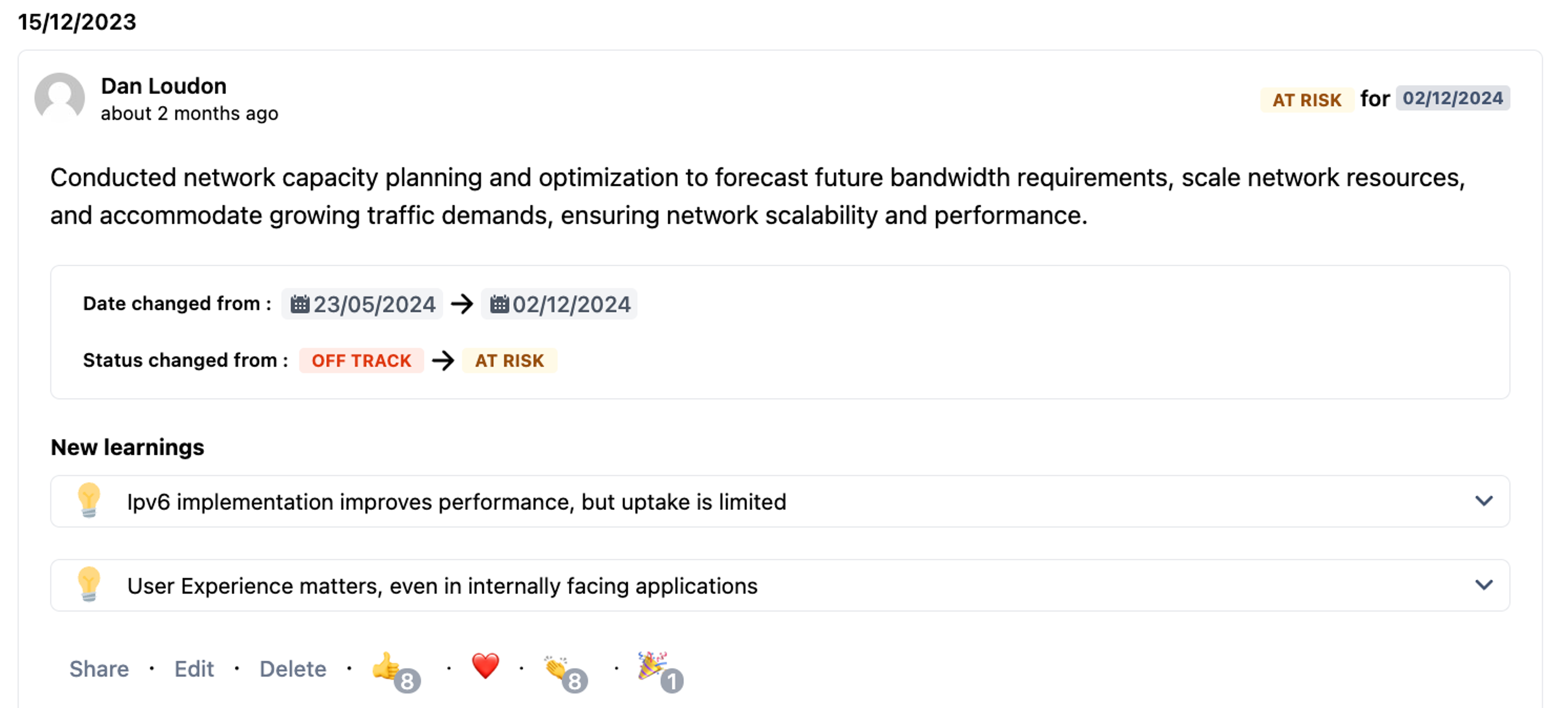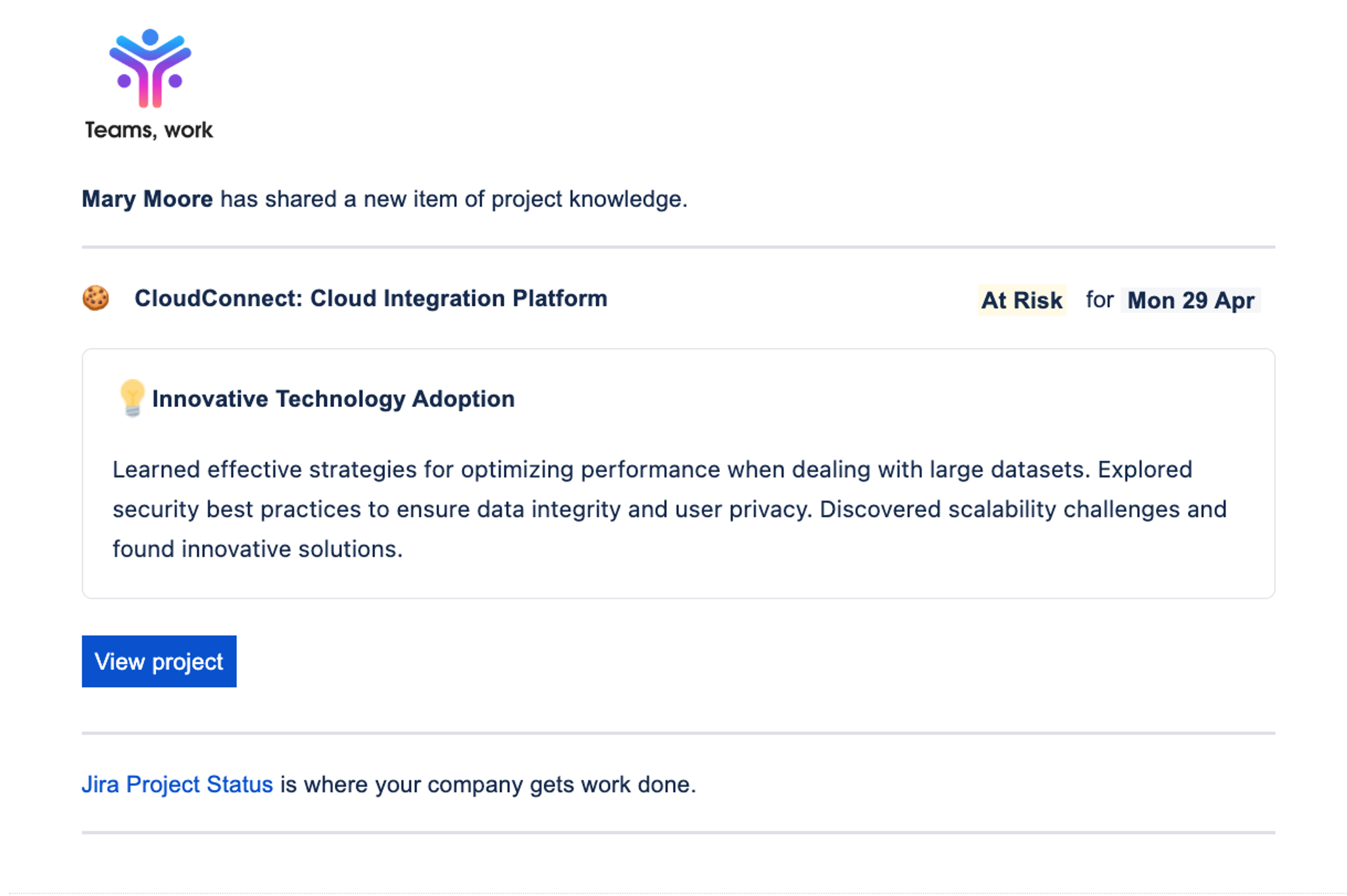Learnings
It's pretty likely that, with every project or goal that you work on, you learn new things.
For example, how to effectively break down work to ship smaller chunks of value. Or, a new trick in the programming language the engineering team use. Or, a performance improvement that can be applied in other places. Or, insights into how your customers experience use the product. These are amazing learnings to pick up.
Unfortunately, often when teams shift about or a project comes to an end, this knowledge gets lost or becomes 'tribal knowledge' that is handed down through word of mouth. (And maybe even interpretative dance...)
Knowledge-sharing across teams and over time is hard to get right. As a result, it can often get filed into the box of 'too hard'. It's often undocumented, lost in a silo, or locked down in some random Drive folder.
And this comes at a cost. Studies have found that when an employee leaves their job or moves teams, coworkers are unable to do 42% of that job due to inefficient knowledge-sharing.
What if? #
What if knowledge could be retained and shared openly? If future teams working on similar projects could benefit from the past experience of people who have solved similar problems? if anyone across your company could quickly get the context they need and easily identify experts in various topics?
Let's talk about "Learnings' #

Let's set the scene: Your team has kicked off a new project on a subject that they have a lot to learn about.
Usually, in order to get started, you’d need to spend a lot of time conducting research and trying to figure out who knows about this to get the right information to move things forward.
Recording learnings in Beacon will allow others to get a head start on what has already been discovered. Projects tagged similarly can be found and inspected to see what other people have already learned.
By connecting learnings to updates on how a project is progressing, we enable anyone to get additional context and identify the best teams to speak with based on what they’re trying to achieve.
Let's get started. #
Record what you've learned #

As a project owner or contributor, as you write your weekly update, take a little time to think about what things you've learned or figured out as part of this week's work. Click on the tab 'Learnings' and record it. You can also capture a learning at any time by visiting the Learning tab for a project you own or contribute to.

Discover what others know #
Contributors and people who follow your project are notified of new learnings in-app and by email.

But the real beauty of capturing learnings is that they are ready for the next team that comes along to benefit from. When you create a new project and tag it based on topics it’s based on, We'll recommended related learnings from similar projects also tagged with those topics.
What does a great 'Learning' look like? #
Learnings should be curated, shareable, and evolve over time. That’s why we can always update an existing learning as your knowledge grows and understanding of it deepens.
When it comes to capturing a learning, we encourage you to ask yourself, “what do I wish I knew when I first started this project?”, and, “what would I tell someone else working in this space?”.
This sounds very much like something that comes up in a retrospective... #
True, but retrospectives tend to come up fortnightly/monthly and is tied to the team running them. Depending on the process of the team, it could actually be months until they have a retrospective and even then, you need to find the documentation where it is recorded.
Learnings tend to occur at any time as a project progresses, and they are tied to the work, not the team.
Remember, the audience for a retrospective is the direct team, whereas we think that learning should be useful outside of the team. Hence, we believe that a retro item summarises what’s happened within the team, whereas a learning is an insight from the discussion that’s of utility to other teams.
